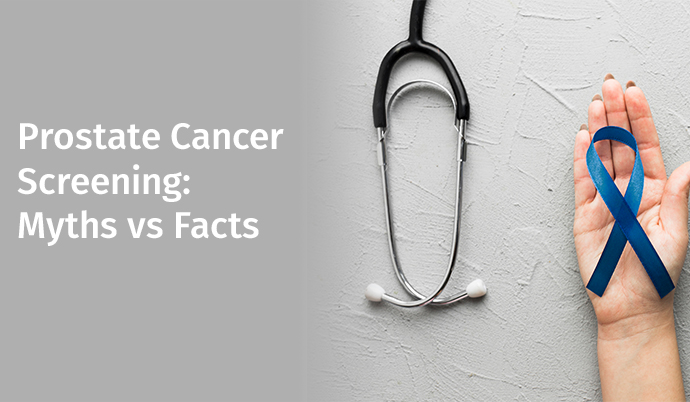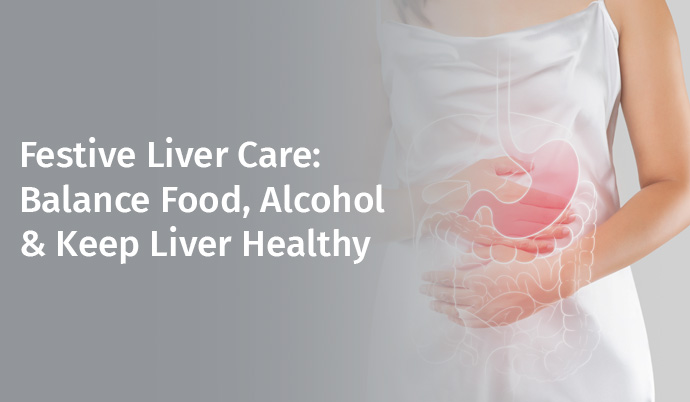
This reluctance can lead to complications. Early detection of men's health is the single most effective weapon we have against this disease. The purpose of this guide, produced by the professionals at Sir Ganga Ram Hospital, is to help make sense of the confusion. We will review five of the most typical myths around screening for prostate health and shed some light with credible information providing you with details to make solid decisions regarding your long term health.
Key Takeaways
What is Prostate Cancer and Why is Early Detection Key?
The prostate, a small gland in men, is located just below the bladder and is part of the reproductive system. Prostate cancer occurs when cells in the prostate grow uncontrollably.
Advanced prostate cancer may cause signs, including difficulty urinating, blood in the urine, or pelvic pain. But, remember this: Early stage prostate cancer usually has no symptoms. If you wait for symptoms to show up, you can miss the opportunity to be diagnosed and treated early and effectively. That is why prostate screening is so important.
Prostate Screening: 5 Common Myths vs. The Facts
Let’s clarify the misleading messages that usually stop men from taking proactive action.
Myth 1: "I don't have symptoms, so I can't have prostate cancer."
Fact: This is arguably the most dangerous myth. Screening is designed to detect potential cancers before there are symptoms. By the time urinary problems or pain develop, the cancer may have already grown or spread, making it more challenging to treat. Men's health screening for early detection is your best chance for a cure.
Myth 2: "Prostate screening is a painful and invasive procedure."
Fact: The first part of prostate screening is a simple blood test called the Prostate-Specific Antigen (PSA) test. It involves a blood draw from your arm, like any routine blood test. Your doctor may also recommend a Digital Rectal Exam (DRE), which is a short physical exam of the prostate. Though it may be uncomfortable for a moment or two, it is quick, safe, and provides important information.
Myth 3: "A high level of PSA means I have cancer."
Fact: This is completely false, and the cause of a lot of anxiety. The PSA test is not a cancer test, it is a risk indicator. There are many reasons for an elevated PSA level that are not related to cancer, like:
A high level of PSA is just providing an indication of the need for further evaluation and a discussion with your urologist about the cause.
Myth 4: “Prostate cancer is an old man’s disease. I don’t need to worry because I’m too young.”
Fact: It is true that the risk of prostate cancer increases substantially as men age (the vast majority of prostate cancer cases are diagnosed in men over the age of 65); however, prostate cancer is not just a disease of older men. In India, it is increasingly common to diagnose prostate cancer in men in their 50s. Additionally, men who have a strong family history of prostate cancer (father or brother with prostate cancer) have a significantly increased risk, and these patients should be talking to their doctor about screening beginning at age 40 or 45.
Myth 5: “If I get a diagnosis of cancer, it will change my quality of life with harsh treatments I have to undergo.”
Fact: The field of urology has completely changed the management of prostate cancer. First of all, not all prostate cancers need immediate treatment. If you have a slow-growing, low-risk tumor, you may qualify for active surveillance, which means no treatment is necessary. In those instances when prostate cancer is diagnosed that requires treatment, modern options for surgical and radiation intervention (robotic-assisted surgery and highly targeted radiation treatment) have greatly improved quality of life and side effects such as incontinence or erectile dysfunction over older treatment options. If detected early, you get the most treatment options and least invasive options regardless of diagnosis.
A Proactive Approach to Men’s Health at Sir Ganga Ram Hospital
The choice to start prostate screening is a decision you should make with your doctor. At the Department of Urology & Andrology at Sir Ganga Ram Hospital we believe in a patient-focused men’s health early detection model.
Our urologists are dedicated to offering straightforward, confidential, and caring consultations. We don’t just provide a test; we review your personal risk factors, explain what the results mean, and work with you to create a personalized health plan. We are your partners in proactive health, from high-tech diagnostics through advanced, minimally invasive treatments.
Don’t let myths and uncertainty dictate your future. [Schedule a consultation today with one of our Urology specialists.]
Frequently Asked Questions (FAQs)
Q1: What is a PSA test, exactly?
The PSA test is a blood test that looks for a substance called Prostate Specific Antigen. This substance is a protein made by the prostate gland. If PSA levels are high, it could mean there is an issue with your prostate. In particular, it may be cancer, but it is more often something benign.
Q2: What is a Digital Rectal Exam (DRE)?
A DRE is a physical exam that includes a doctor inserting a gloved and lubricated finger in the rectum, briefly, to feel your prostate gland. The doctor feels for lumps, hard areas, or any abnormality. The exam takes less than a minute.
Q3: If I have an enlarged prostate (BPH) does that mean I am more likely to have prostate cancer?
No. BPH is a benign condition and it is not precancerous. The issues caused by BPH can be similar for some men with prostate cancer. BPH and prostate cancer, both, can cause higher PSA levels. Thus, it is important to have a complete evaluation by a urologist.




